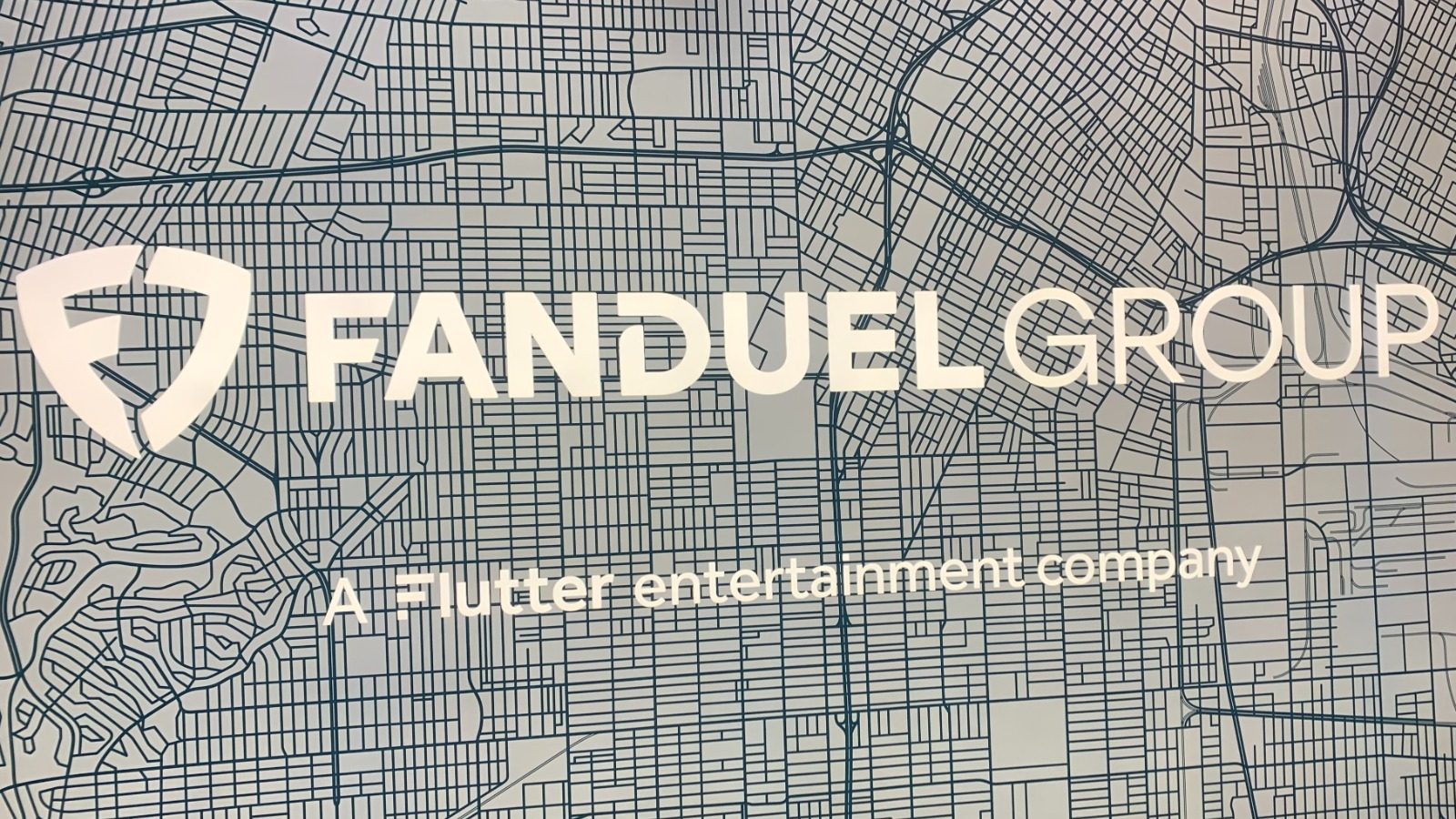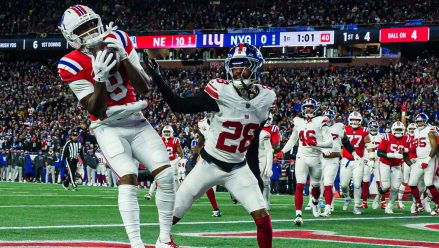Though Susquehanna is still rating DraftKings and Flutter as positive, analysts there Tuesday sent out notes saying they had lowered price-target estimates for both companies. The change is largely due to unfavorable sports results during the third quarter.
Taking into account states that have already reported September revenue — Indiana, Iowa, Kansas, Maryland, and West Virginia — Analyst Joe Stauff wrote that the industry saw a 15% increase in handle, which strengthens the idea that prediction markets are not cannibalizing traditional sports betting in legal states. New York and North Carolina revenue reports were not included in the analysis.
Stauff wrote that he is lowering his price target for DraftKings from $64 to $59. The stock was trading at $34.36 Tuesday afternoon, well below its month-long high of $44.09 on Sept. 23. Stauff made a similar change to Flutter, dropping the price target from $354 to $324. The stock was trading at just over $251 Tuesday afternoon. Flutter was trading as high as $285.32 Sept. 22 — but both stocks slid precipitously Sept. 30 on news that prediction market Kalshi had introduced same-game parlays.
In arriving at the lowered price targets, Susquehanna uses a “group of comparable SaaS-based stock comps of similar size and calibrate the levels of “hyper-growth” over the next three years vs. the online gambling industry in the U.S.” Stauff wrote that the group trades at an average 5.1x sales multiple.
2026, 2027 price targets also down
For both companies, Susquehanna applied a “discount” against the 5.1x sales multiple in determining company valuation. It applied a 30% discount to DraftKings to reach a 12-month valuation of $30.6 billion. The company projects Flutter to reach a valuation of ~$69B — $43 billion for FanDuel, which includes a 15% discount against the group, and $28 billion for non-U.S. verticals, plus a $2 billion reduction attributed to capitalizing corporate overhead.
Stauff also dropped both companies’ 2026 and 2027 price targets, citing the possibility of rising taxes in multiple states. This year, lawmakers in Illinois added a per-wager tax, and legislatures in other states, including Louisiana and New Jersey, increased the digital sports betting tax. For DraftKings, Stauff wrote that concerns around “competitive inroads from prediction markets” in addition to “ongoing structural hold skepticism” contributed to the reduced price targets.
In the broader industry, Susquehanna rated online sports betting stocks as neutral after NFL Week 6, and reduced industry wide gross gaming revenue (GGR) estimates, pointing to unfavorable sports results, noting that it had previously “baked in too small of an impact to hold from UN-favorable sports results.”
Susquehanna rates six of the biggest wagering companies as positive, and Caesars as neutral.
BetMGM won’t play in prediction markets
During its third-quarter earning call Tuesday, BetMGM CEO Adam Greenblatt said that the company will steer clear of prediction markets, because “as the law stands today, sports predictions markets are — in essence — illegal sports betting.” Greenblatt supported Susquehanna’s premise the prediction markets are not cutting into legal sports betting handle, saying “if prediction markets were having an impact, we would have seen” it. But the vertical — a joint venture between MGM Resorts International and Entain — reported net revenue of $667 billion, up 23% against the same period last year, including a 36% increase in wagering revenue.
So far, BetMGM and other legacy casino companies have stayed on the sidelines as prediction markets have emerged as legal sports betting competitors. But Underdog is already live with prediction markets in partnership with Crypto.com, and FanDuel has plans to launch a prediction market with CME. Underdog is currently offering sports event contracts, while FanDuel says it does not yet have plans to do so.
DraftKings has not announced a prediction market plan or partner but submitted a new application with the National Futures Association (NFA) in June. Reports surfaced in July that DraftKings was exploring a deal with existing prediction platform Railbird, but there has been no formal announcement since then.
Greenblatt said his company will stay on the sidelines, in part because some state sports betting regulators have sent letters to operators suggesting potential penalties for licensees who operate the prediction-market space.







